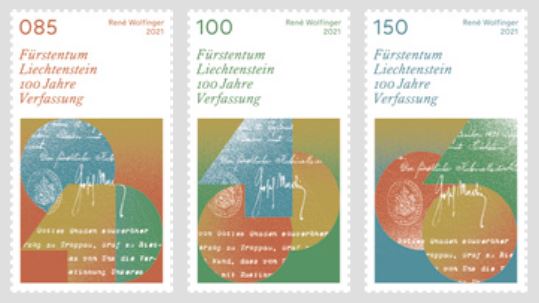 The 100th anniversary of the Constitution of the Principality of Liechtenstein is being commemorated by Liechtenstein Post. The three stamps “Freedom” (value CHF 0.85), “Peace” (value CHF 1.00) and “Democracy” (value CHF 1.50) are produced in contemporary high-quality metallic printing and foil stamping and, with the excerpt from the original 1921 edition of the Constitution shown, build a bridge to the time when the Constitution was created.
The 100th anniversary of the Constitution of the Principality of Liechtenstein is being commemorated by Liechtenstein Post. The three stamps “Freedom” (value CHF 0.85), “Peace” (value CHF 1.00) and “Democracy” (value CHF 1.50) are produced in contemporary high-quality metallic printing and foil stamping and, with the excerpt from the original 1921 edition of the Constitution shown, build a bridge to the time when the Constitution was created.
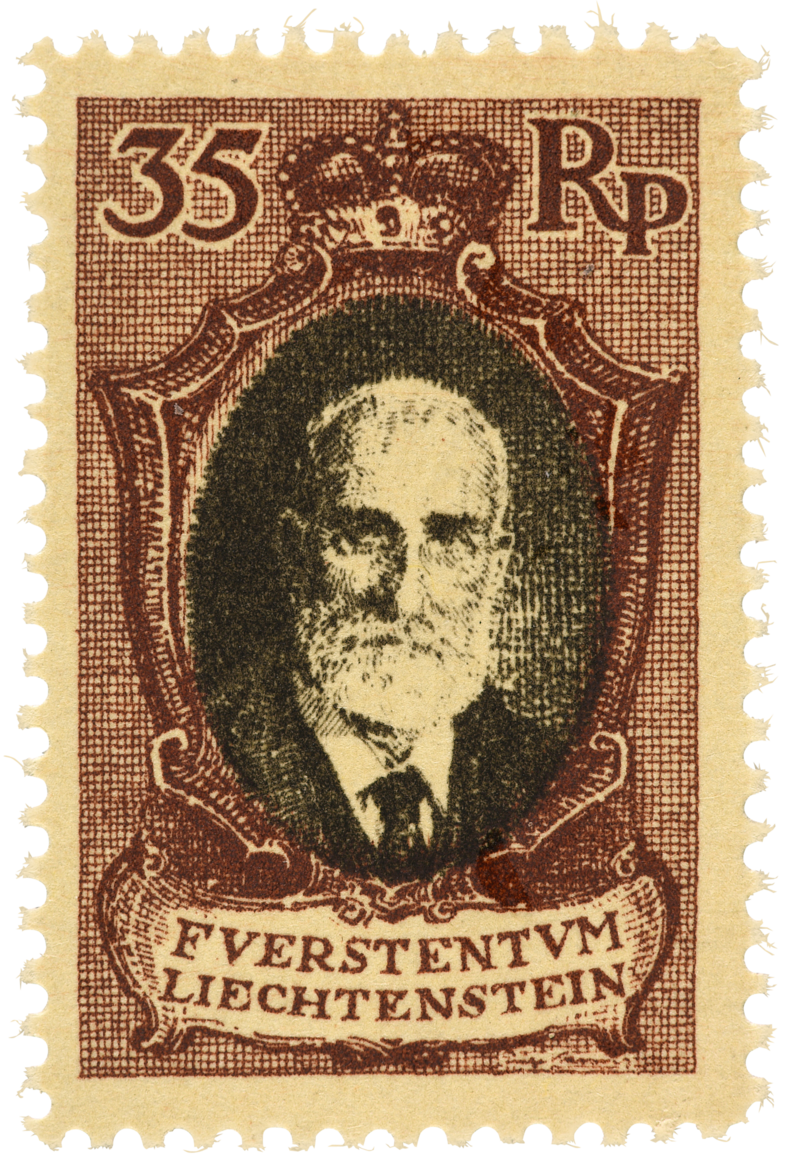
Prince Johann II introduced the constitution, which he reformed in 1921, in 1862.
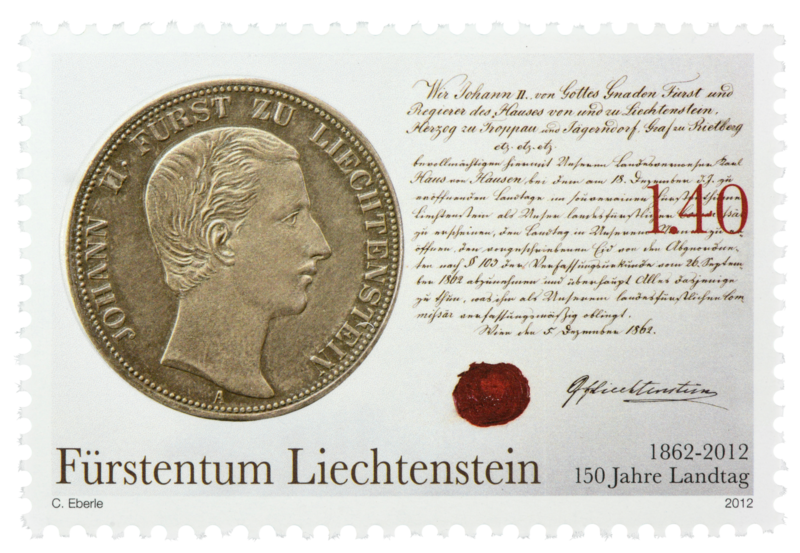
2012: 150th anniversary of the Liechtenstein Parliament / Constitution
History: Prince Johann II granted Liechtenstein its first constitution in 1862, which also established a democratically legitimize State Parliament. This Parliament (in which 3 out of 12 members were still appointed by the Prince) had the right to participate in finance, state treaties, control of the administration, and the military. The Reigning Prince could no longer overrule the Diet in legislative matters.
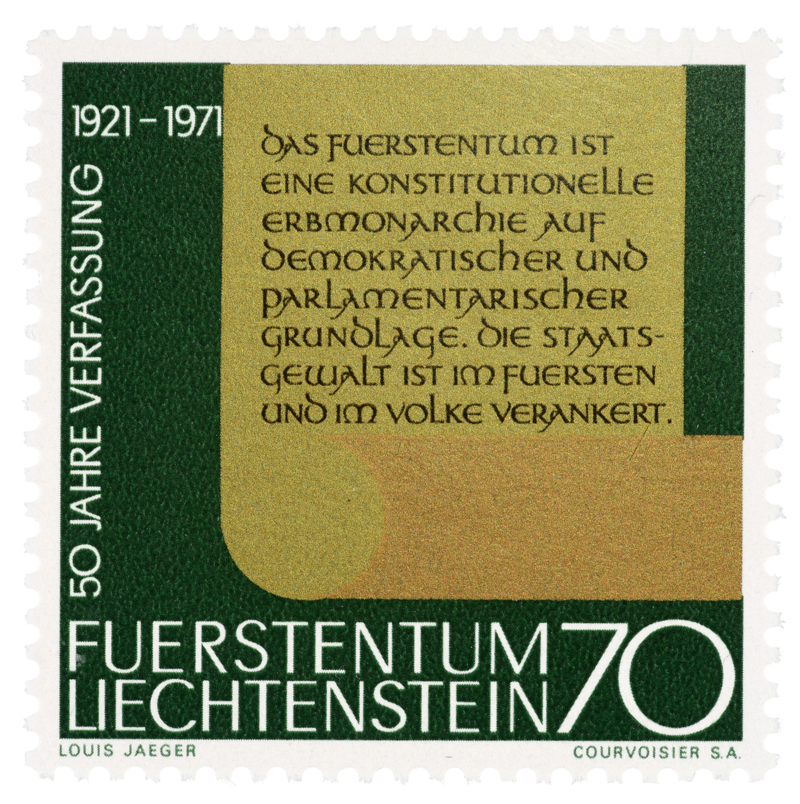
1971: 50 years of the current Constitution of the Principality of Liechtenstein
The First World War also triggered demands for constitutional changes in Liechtenstein, especially since political parties were now increasingly speaking out. After the Liechtenstein November putsch in 1918, work finally began on a new constitution. In 1921, the present constitution was enacted, which defines itself as a constitutional hereditary monarchy on a parliamentary and democratic basis. Most of the tasks of the state are carried out with the cooperation of the Reigning Prince and the State Parliament, which means that the monarchical and democratic principles are on an equal footing. In addition, direct democratic elements such as popular initiative and referendum are established.
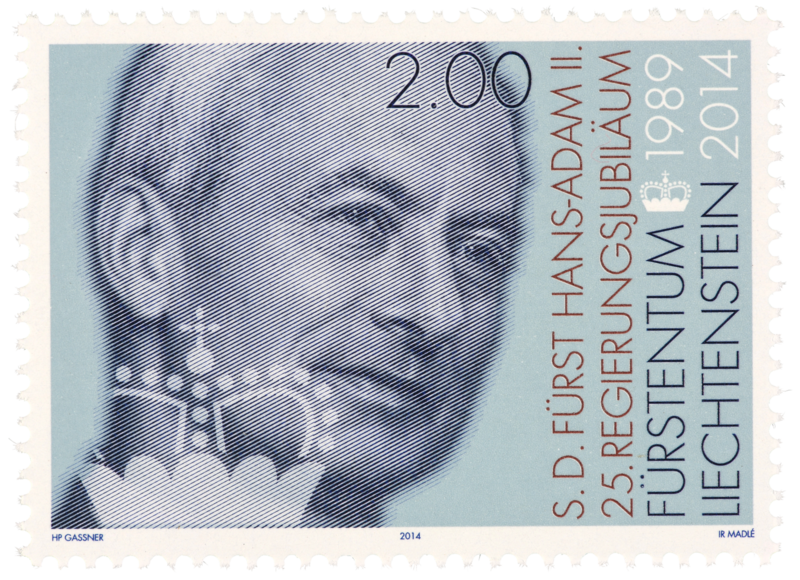
Prince Hans-Adam II
This constitution was amended in 2003 with the participation of Prince Hans-Adam II. Since then, the Reigning Prince can dissolve the State Parliament at any time and govern himself by means of emergency decrees. He can also dismiss the government unilaterally. This amendment also gives him a veto right in matters of appointing judges. In return, from now on individual municipalities can leave the principality, and the people are given the right to express a vote of no confidence in the prince according to Article 13. The pronounced vote of no confidence is then decided by the voting members of the Princely House (of which the Reigning Prince himself is the chairman).
Thus, the Principality of Liechtenstein has since then had a constitutional hereditary monarchy with democratic-parliamentary features, in which the government is determined by the Liechtenstein State Parliament and only appointed by the Prince. However, the government in Liechtenstein depends on the confidence of the Prince and can be dismissed by him.
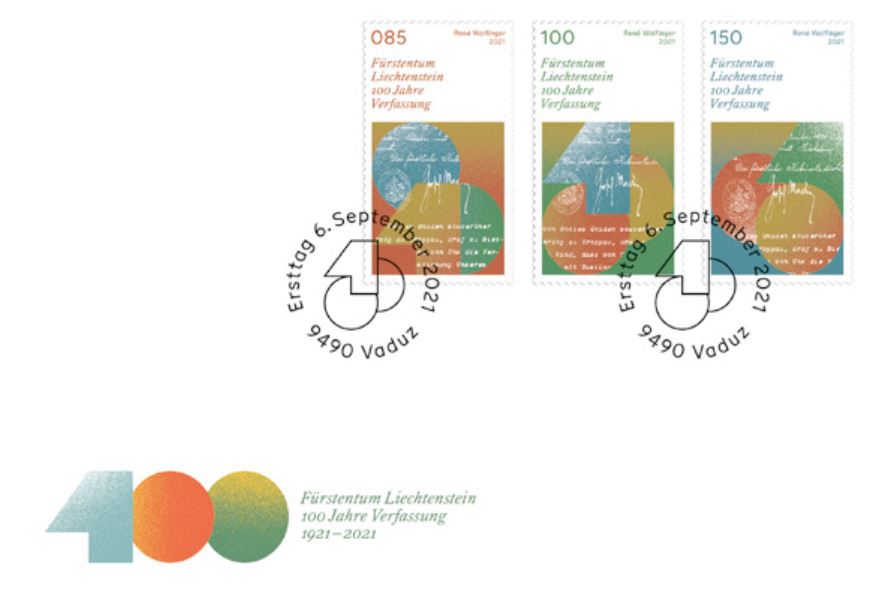
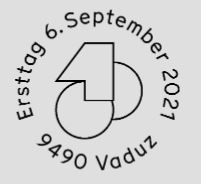 Issue: 100 Years of the Constitution of the Principality of Liechtenstein
Issue: 100 Years of the Constitution of the Principality of Liechtenstein
Tax value/motif: CHF 0.85 Liberty CHF 1.00 Peace CHF 1.50 Democracy
Stamp size: 55 x 48 mm
Perforation: 13 ¼ x 13 ¾
Sheet format: 146 x 208 mm
Design: René Wolfinger, Balzers
Printing: Offset 4-colour Pantone metallic + hot foil stamping (white) Royal Joh. Enschedé, HaarlemPaper Truwhite PVA 110 g/m2, gummed
Print run: 32 000
